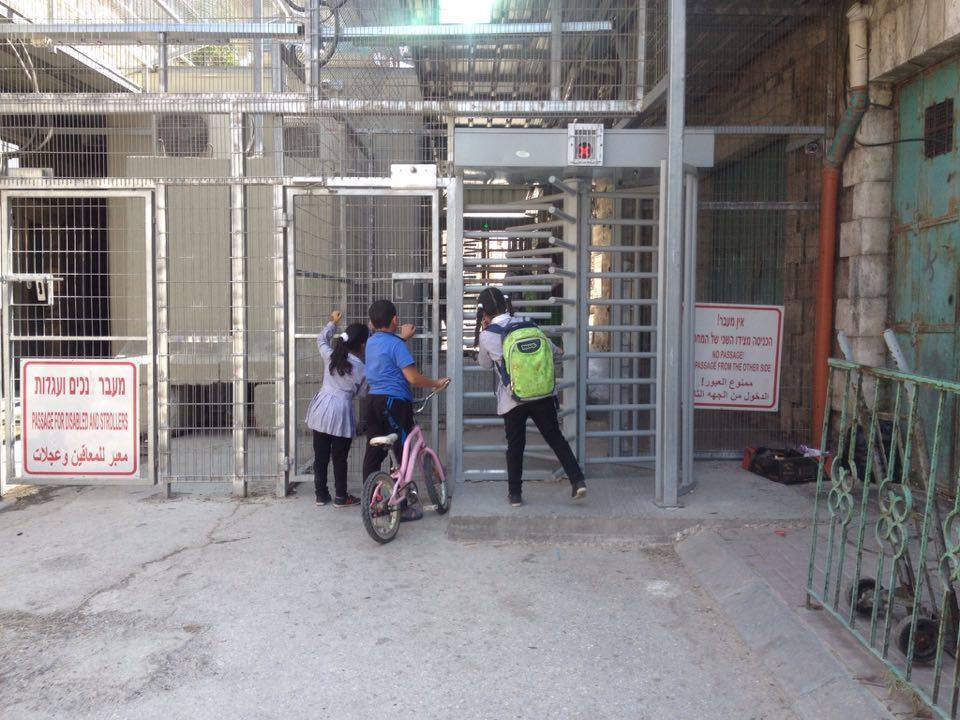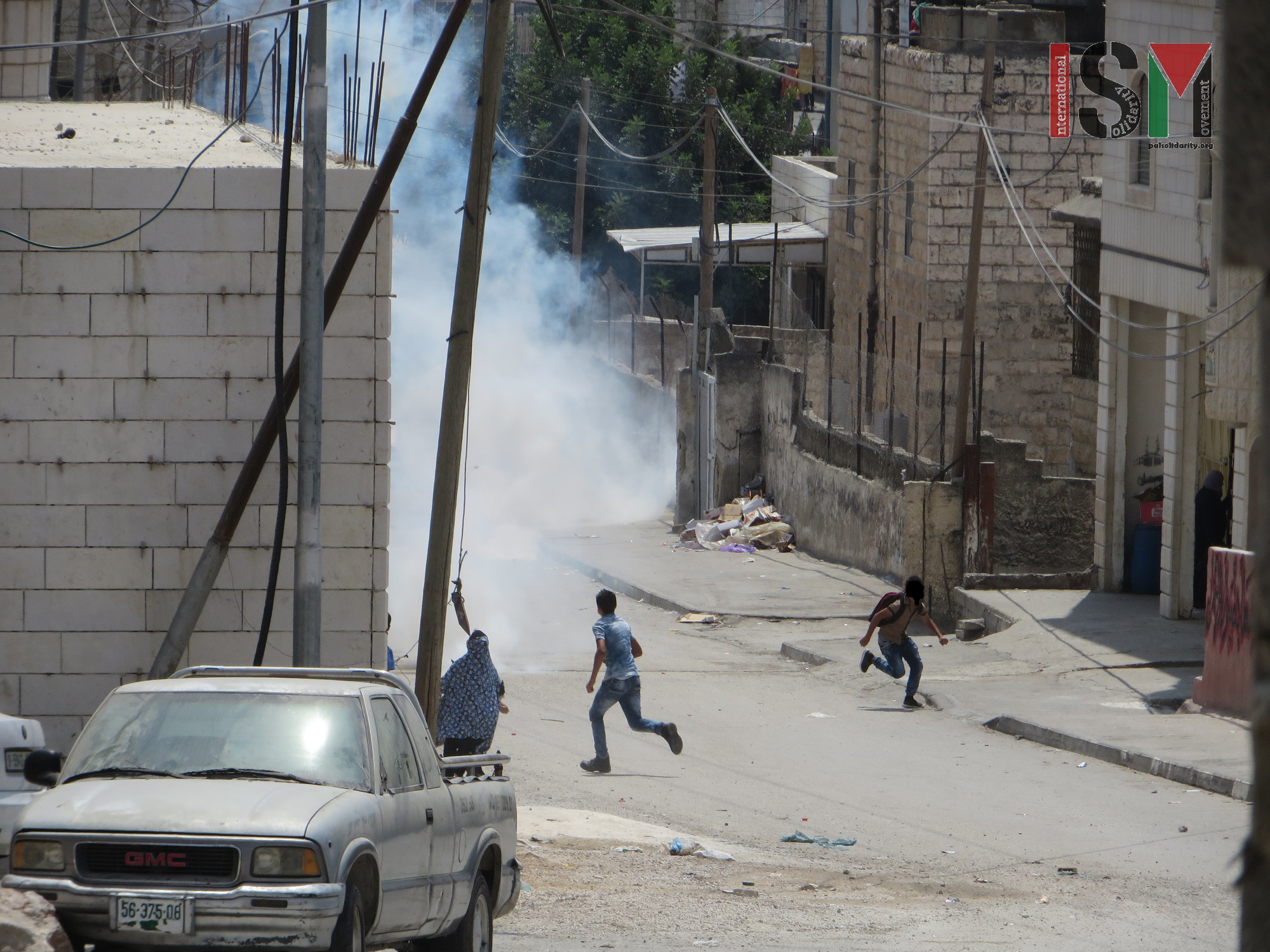Tag: Denial of Entry
-
Israeli forces continue annexation of ethnically cleansed Shuhada Street
20th September 2016 | International Solidarity Movement, al-Khalil team | Hebron, occupied Palestine Israeli forces in occupied al-Khalil (Hebron) are increasing their efforts to slowly annex even more of the tiny part of Shuhada Street where Palestinians are still allowed to walk. The majority of Shuhada Street, once the main Palestinian market and connection between…
-
Achieving education under occupation
31st August 2016 | International Solidarity Movement, al-Khalil team | Hebron, occupied Palestine The 28th of August 2016, a new school year in occupied Palestine has started after a 3-month summer holiday. In the occupied West Bank city of al-Khalil (Hebron), Palestinian children living in the H2-area, under full Israeli military control, are posed with…
-
School-children tear-gassed on 2nd day of school
29th August 2016 | International Solidarity Movement, al-Khalil team | Hebron, occupied Palestine On 29th August 2016 Israeli forces at Salaymeh checkpoint in occupied al-Khalil (Hebron), fired rounds of tear gas as school-children attempted to make their way home through the highly militarised checkpoint. The Salaymeh checkpoint, for many school-children, is one of the unavoidable…



